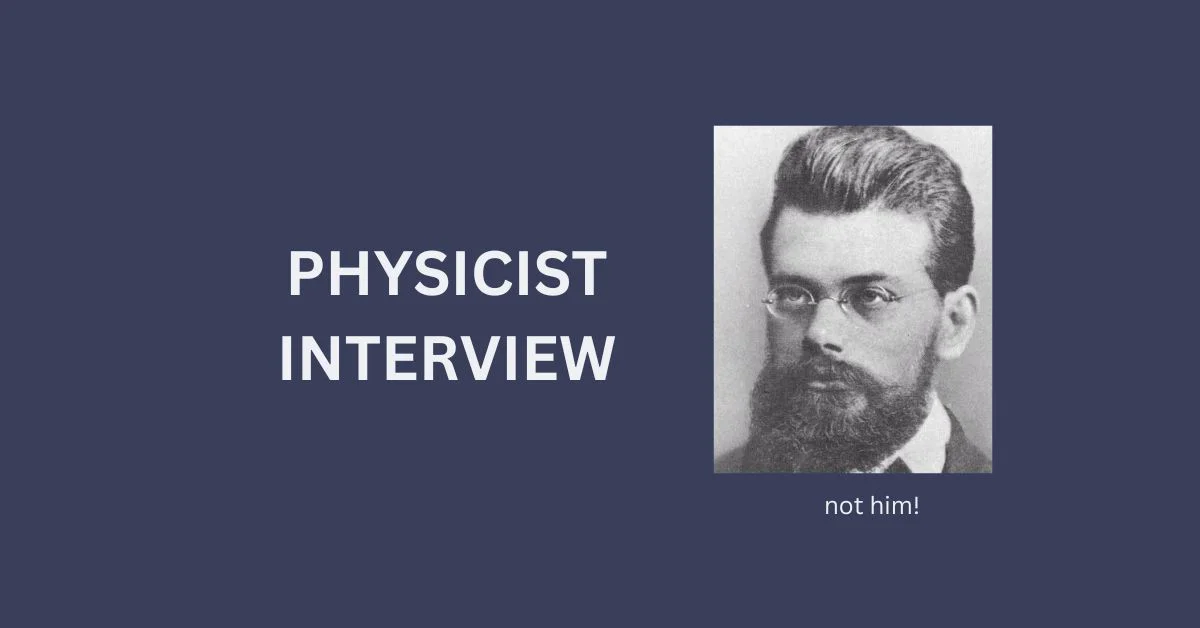14) Do you think modern physics can be saved? If so, how?
Oh, I do think it can be saved. After all, the mathematics is well crafted. All it takes is scientists who devote more time to understanding what can already be described instead of elaborating further in the mathematical sense.
This may seem a utopia, but actually, mathematicians do that. They recognize the value in understanding stuff as much as moving forward. It is a cultural, or rather sub-cultural, thing.
Physicists tend to be much less interested in this and this is reflected in the “demand” for such advancing work. For deducing new things from what has already been deduced rather than actually giving a better intuition or understanding of what has already been discovered.
Ashna: That sounds quite achievable, given the right cultural changes.
15) Do you get the impression that physicists understand what mathematics is why it is so useful?
No, they don’t. No, I don’t think they do. But fortunately, mathematics is too solid to be affected by their users’ misconceptions, most of the time.
Many physicists like to say that mathematics is the language of the universe as if natural phenomena were somehow written in a code. Quite close to a divine creator viewpoint, it seems to me.
I find it quite simple: we create mathematical concepts, and then theorems and theories based on those concepts are discovered as necessary implications of the definitions that we created.
I may be taking a long shot here, but I think they don’t realize that we create mathematical concepts because they have given up on induction, so they only focus on the deductive part. Which is a sad thing.
Ashna: I think the Republic represents a fairly accurate view of what many consider mathematics to be.

16) What do you think about all these quests for a “Theory of Everything?”
I find it funny… What exactly are they looking for? Isn’t a compendium of all human knowledge by definition an attempt at a theory of everything? I don’t quite get the definition they give.
Do they want to unify forces and particles? How is that supposed to be a theory of everything? Good luck using that theory to explain phase transitions.
Then why do they call it “of everything”? I think it is of everything they deem worthy of such a godlike theory?
Being more realistic and also more ambitious, wouldn’t something like conservation of energy be a much, much better candidate for a theory of literally everything?
So, I think that they are lost in their quest for grandeur. You know what I mean? I don’t think it is, ultimately, about understanding the world or getting a unified description of it. It is mostly about feeling as though they have ascended into a godly realm or something like that. That they have crowned human knowledge.
I think they are looking for something of a personal glory. Which I think is OK, but it is not in finding such an apparent “Theory of Everything”.
Human knowledge, by definition, is the theory of everything. As we get going, it just advances forward and forward. And since everything is integrated, that is a “Theory of Everything”. Anything else is just pretense.
Ashna: I think they basically want to be able to describe everything in physics in a set of equations you can print on a t-shirt. I have heard some of them say this.
Juanma: If you want a short equation to describe everything in physics, you could just write, “E dot equals zero”. I mean, that is something that you can print on a t-shirt. That’s not something most people will really understand. So, it is not so easily solved. But, being honest, I think that is the closest you will ever get to a “Theory of Everything”, just saying that energy gets conserved over time.
I think emergent properties prove that no such monastic Theory of Everything will ever be achievable. Because at different levels, the very same physical objects behave or give way to very different results.
So, you can’t just encode macroscopic behaviors and microscopic behaviors in a table of fundamental particles.
Any attempt at what they call a “Theory of Everything” is not really a “Theory of Everything”. It is just a theory of everything they care about.
17) There are, of course, other interpretations of quantum physics than the Copenhagen one. To what extent are they taken seriously?
Well, generally speaking, fundamental physicists can be divided into two big groups, aside from sparse exceptions. On the one hand we have neo-Positivists, who disregard anything that contains the words “explanation”, “interpretation”, “physical meaning” or anything of the sort.
On the other hand, there are mystics who enjoy pretending that science-fiction is actually real. These, interestingly, only take seriously whatever is deranged, and disregard any serious attempt at explaining things.
They get really picky when you try to say electrons have a physically determinate position, but they are totally okay with it, somehow crossing two slits at the same time.
That’s just going by emotion: instead of considering facts, they stick to whatever picture seems more appealing to them.
Ashna: I imagine of Bohr was alive, he would tell us to try blend all these approaches together somehow.
18) Tell us about some of the most troublesome trends you have encountered in your studies and/or research?
I have really struggled with the ‘shut up and compute’ paradigm, because I simply cannot work like that: if I don’t fully understand what I’m doing, I get blocked, because my mind is unable to focus on anything other than understanding it. I can’t go on if I don’t get a sense, at least a sense, of what I’m doing, and when nobody provides such conceptual explanations, I’m in serious trouble.

On a more technical level, there’s one huge mistake that pops up everywhere in physics education. Many absorb it inadvertently, but it’s quite harmful. Some people implicitly think in terms of Aristotle’s “final causes”.
That is, reality acts in some way so that something else happens or remains true.
For example, many people will state that “the system evolves in order to reach the state of minimum energy”.
They will also say that “electric charges move around a conductor so that the field inside is zero”. Or that “some random events will happen to compensate some others in probability”.
In other words, to them, the laws of the universe, perhaps “written in mathematical language” in some mystical way, are literally obeyed by reality.
Sometimes they’re quite literal about this, stating that “the equation must hold, so this must happen”. This is a blatant reversal of the cause and the effect principle, or premises and implications for that matter.
I think that is a total misunderstanding of causality, and people who get used to thinking that way usually lose their ability to think causally. And many people do that, let me tell you, many people do.
Ashna: My brain works that way. If I am reading something and I cannot understand it my brain freezes and says “you are not going on until you figure out what that was all about”.
But, sometimes I know it there is not much to understand, because is not explained, so I just have to move on.
19)Tell us about some of your better experiences in your studies and or research. Is there anything that gives you hope?
Well, not to brag about it, but most of my best experiences during my studies starred me. I would be a rebel, which felt liberating but it also brought up some trouble.

